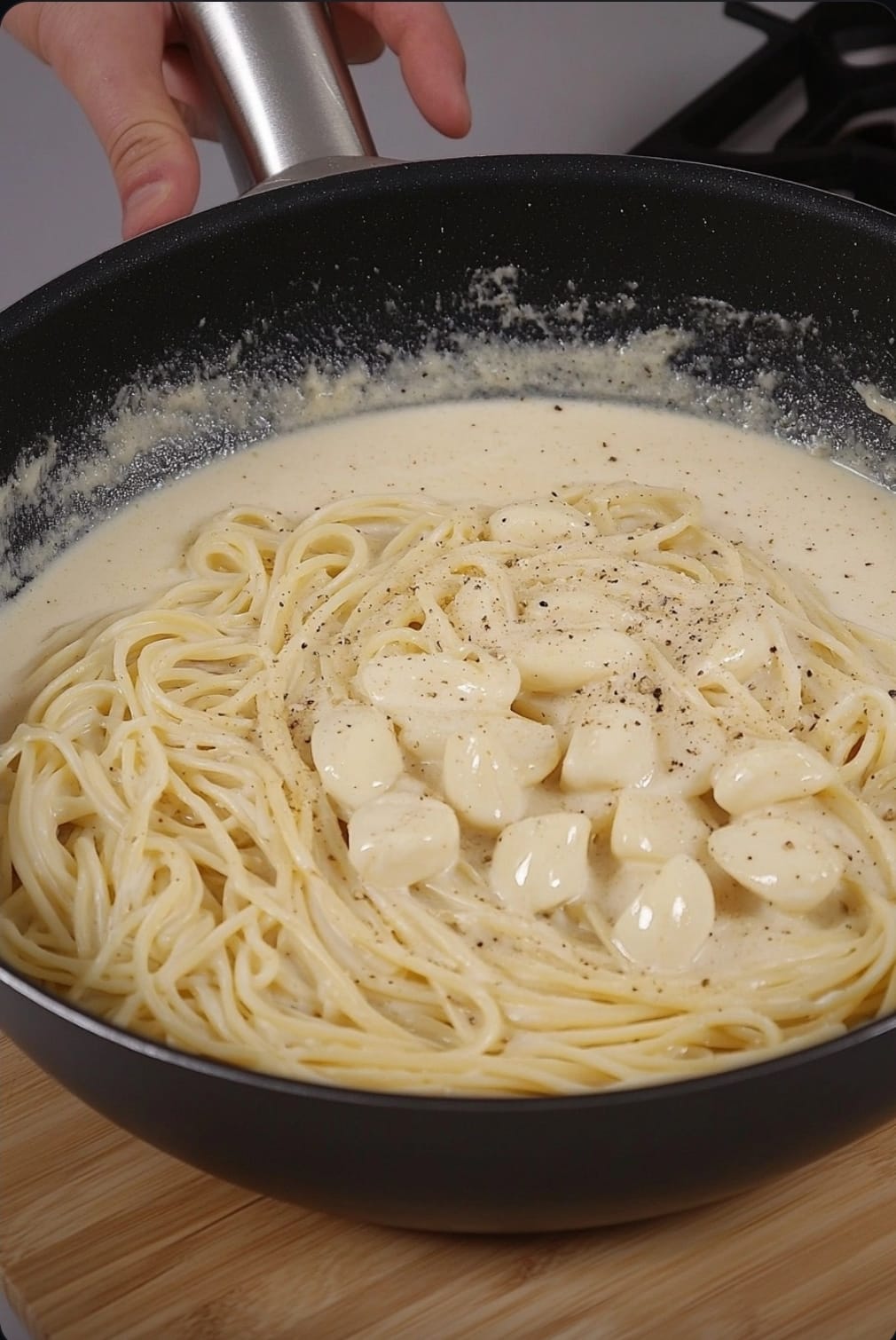If you’re preparing a sauce, add your cooked pasta to the pan with the sauce. If necessary, use some of the reserved pasta water to adjust the consistency of the sauce and help it coat the pasta evenly.
Toss and Serve
Toss the pasta and sauce together on low heat for a minute or two, ensuring everything is well combined. Finish with fresh herbs or a sprinkle of cheese, if desired.
Serving and Storage Tips:
Serve your pasta hot, ideally right after combining it with the sauce. The flavors will be freshest at this point.
Leftover pasta can be stored in an airtight container in the fridge for 1-2 days. When reheating, add a little pasta water or olive oil to bring back some moisture and prevent it from drying out.
To freeze pasta, cook it until just al dente, then cool and freeze it in a single layer. Reheat by boiling or sautéing with your sauce.
Variations:
Tomato-based Sauce: For a classic red sauce, sauté garlic and onions in olive oil, then add crushed tomatoes, salt, and pepper. Let simmer for 15-20 minutes before combining with your pasta.
Creamy Sauce: For a rich, creamy sauce, make a roux (butter and flour), add milk or cream, and season with salt, pepper, and nutmeg. Toss with pasta for a silky finish.
Pesto: For a fresh, vibrant alternative, blend basil, garlic, pine nuts, Parmesan, and olive oil to create pesto. Toss with your favorite pasta and enjoy a simple yet flavorful meal.
Seafood Pasta: Add shrimp, clams, or mussels to a garlic and white wine sauce for an unforgettable seafood pasta experience.
FAQs:
Q: Why do you reserve pasta water before draining?
A: The pasta water contains starch from the pasta, which helps thicken sauces and makes them cling better to the pasta. It’s a secret ingredient that elevates the texture of the dish.
Q: Can I use any type of pasta for this trick?
A: Absolutely! This technique works for all types of pasta, whether it’s long strands like spaghetti, wide ribbons like fettuccine, or small shapes like penne.
Q: Do I really need to salt the pasta water?
A: Yes! Salting the water is essential for flavoring the pasta. Without it, the pasta can taste bland. It’s a small but significant step in ensuring a delicious final dish.
Q: Can I make pasta ahead of time?
A: Yes, but fresh pasta is always best. If you need to make it in advance, cook it al dente and store it with a little oil to prevent it from sticking together. Reheat with sauce or a bit of pasta water.
By following this simple but impactful trick, you’ll be making pasta like an Italian nonna in no time. Trust me, your taste buds will thank you!

